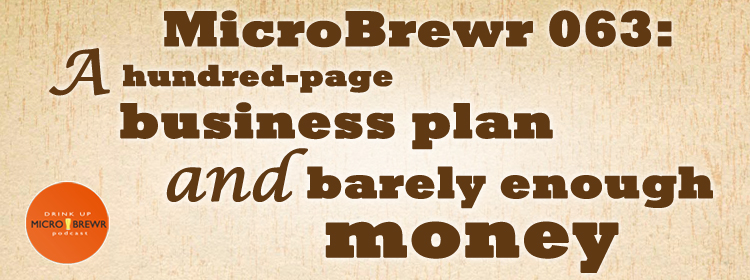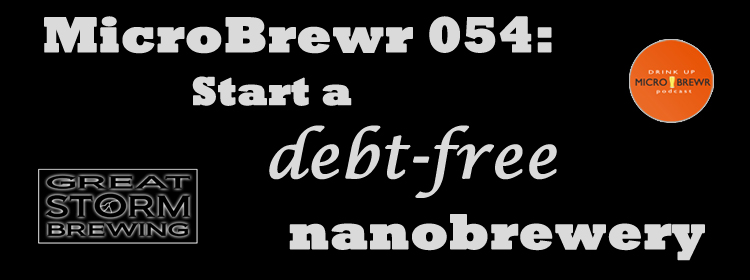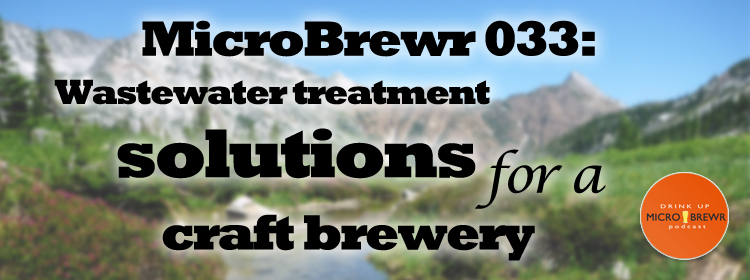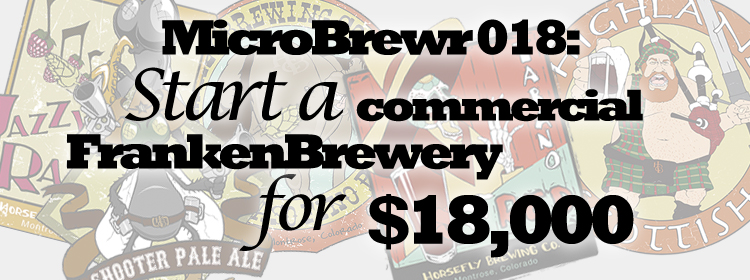MicroBrewr 063: A hundred-page business plan and barely enough money
Podcast: Play in new window | Download | Embed
Subscribe: RSS
At the height of the great recession, Kevin Selvy had a hundred-page business plan and started Crazy Mountain Brewing Company in Edwards, Colorado with $500,000. He calls it an irresponsible amount of money and estimates that nobody should do it with less than $1.5 million.
Nonetheless, he met his 3-year sales estimates within 3 months. After 5 years, their beer is distributed to 18 states and Europe, and they just entered the California markets.
“The best advice I could give,” says Kevin, “is give up your day job and go work for a brewery. When it comes to finding investors, if you can say, ‘I’ve got several years of experience in the industry, I know what I’m doing,’ that goes a lot farther than somebody saying, ‘I just like making beer in my kitchen.’”
Kevin sent his business plan to more people than he could count. He drove 10 hours and slept in the back seat of his car to meet with a potential investor.
“Raising money is a very difficult aspect of starting a brewery,” warns Kevin. “You’re going to get 900 ‘no’s before you get one ‘maybe.’”
Here’s some of his advice:
- Research your business plan
- Have a packet ready for when investors ask
- Don’t give up
Although Kevin’s business plan was about 100 pages, lots of it was graphs and financial tables.
“Make sure it’s very thorough and points a really good picture of what you’re trying to accomplish.”
Brewery specs:
Kettle size: 20 BBL.
Size and quantity of fermentation tanks: 23 tanks, 20-BBL, 40-BBL, and 60-BBL.
Size and quantity of bright tanks: 1, 40-BBL; 1, 20-BBL; and 1, 60-BBL bright tank.
Annual brewing capacity/last year’s production: 17,000 BBL brewed in 2013. 20,000-BBL capacity.
Square footage: 10,314 sq. ft.
Years in operation: 5 years (opened 2010).
“The best advice I could give is: Give up your day job and go work for a brewery.” [Tweet This]
Listener question:
From Kevin Scott: Can you talk about the pros and cons of contracting for raw materials for your beers (i.e, hops, malts, etc.)?
Book recommendation:
Check out the entire list of recommended books, click here.
An upcoming beer style:
Session IPA
Other resources:
- General Solicitation Ban Lifted Today – Three Things You Must Know About It, Tanya Prive, Forbes, September 23, 2013.
- What Small Companies Need to now About Soliciting Investments, Javier Espinoza, Wall Street Journal, September 20, 2013.
- Startup Podcast, Gimlet.
- Business Plan Pro, Palo Alto Software, in Amazon.
- 115: Crazy Mountain – All About Startups, Craft Conscious.
You can reach Kevin Selvy and Crazy Mountain Brewing Company at:
- crazymountainbrewery.com
- Facebook: crazymountainbrewery
- Twitter: crazymtnbrewery
- Instagram: crazymtnbrewery
Sponsors:
“Fast, reliable, affordable, web hosting.”
Support MicroBrewr
Help keep MicroBrewr on the air. CLICK HERE for ways you can help.








